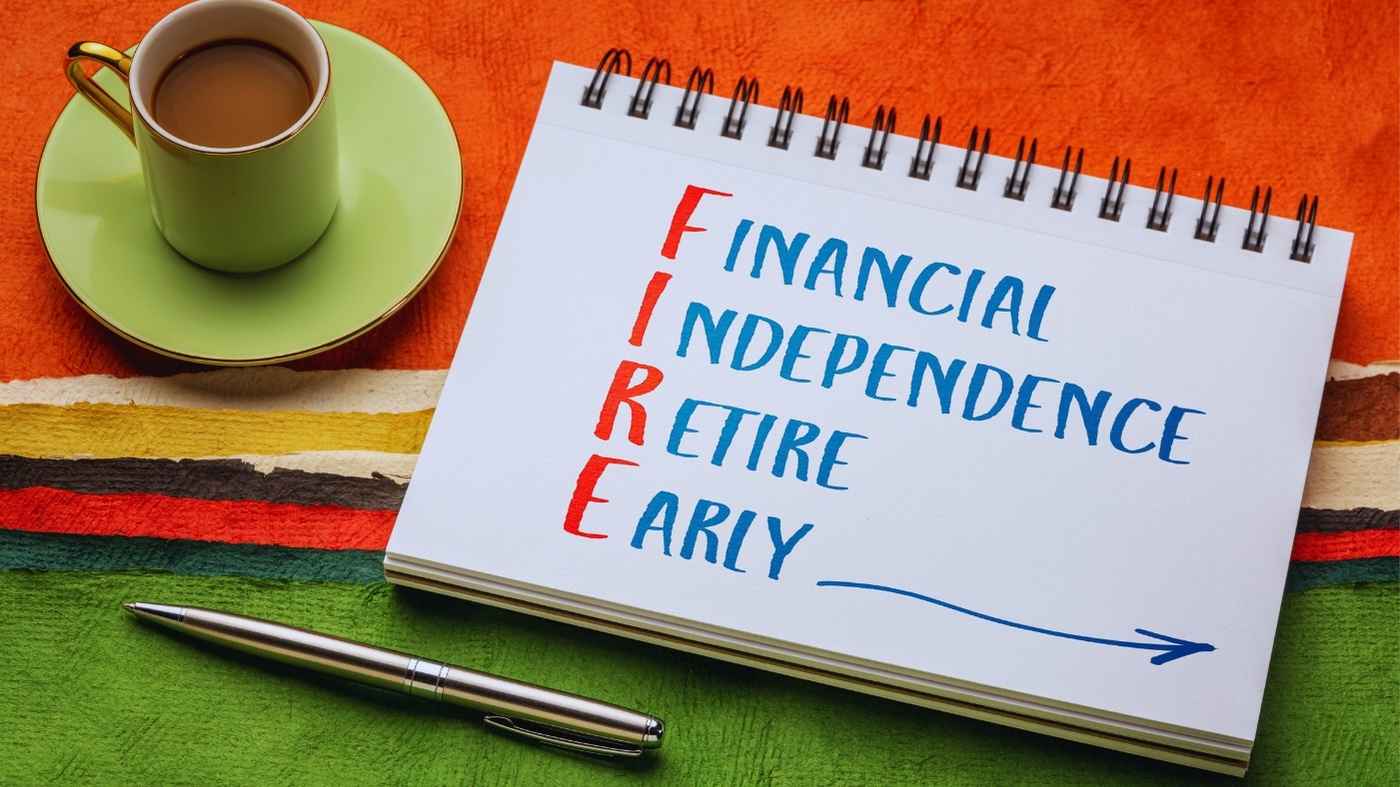Introduction: The Allure of FIRE
FIRE—Financial Independence, Retire Early—has become one of the most buzzed-about movements in personal finance. It promises freedom from the 9-to-5 grind, financial independence in your 30s or 40s, and the liberty to live life on your terms.
But behind the Instagram-worthy photos of beachside laptops and minimalist living, lies a more profound truth: FIRE isn’t a magical escape from life’s challenges. Many who pursue it find themselves trading one kind of stress for another. While FIRE has empowered thousands to rethink their finances, it also comes with risks, sacrifices, and mental burdens.
This blog explores why the FIRE path, while admirable, may not be a stress-free solution—and how to approach it wisely.
1. What is FIRE?
Financial Independence, Retire Early involves aggressive saving and investing—often 50% to 70% of one’s income—to build a corpus large enough to support early retirement. The underlying principle is the 4% rule, which suggests that if you withdraw 4% of your investment corpus annually, it should last 30 years.
For example:
- A person seeking ₹50,000 per month post-retirement would require a corpus of ₹1.5 crore.
- To achieve this in 10–15 years, one may need to invest ₹50,000–₹70,000 per month in high-growth assets, such as equities.
Sub-types of FIRE:
- LeanFIRE: Retire with a modest lifestyle.
- FatFIRE: Retire with a comfortable or luxurious lifestyle.
- BaristaFIRE: Quit your primary job but continue earning with a low-stress or part-time role.
2. Advantages of FIRE
- Freedom of Time: You reclaim your most valuable asset—time.
- Purpose-Driven Life: Focus on projects and passions, not just paychecks.
- Reduced Dependence: You’re not tied to a job or employer for survival.
- Geographic Flexibility: Ability to move anywhere, live anywhere.
- Less Stress (Ideally): In theory, no bosses or deadlines means more peace.
3. Disadvantages of FIRE
- Aggressive Sacrifices: Skipping experiences today for uncertain returns tomorrow.
- Risk of Underfunding: Market volatility or inflation can deplete your corpus.
- Healthcare Uncertainty: Losing employer coverage is a significant issue.
- Social Isolation: Disconnect from peers still on a traditional career path.
- Mental Strain: Not working doesn’t always mean happiness.
4. The Hidden Stressors of Financial Independence, Retire Early
4.1 The Pressure Cooker of Aggressive Saving
Financial Independence, Retire Early demands extreme frugality. Many adherents cut expenses to the bone—skipping vacations, delaying major life events, avoiding social activities, and constantly battling lifestyle temptations.
Stress Triggers:
- Guilt over every discretionary expense
- Feeling “cheap” or anti-social
- Anxiety about under-saving
Reality Check: Financial freedom is empowering, but financial rigidity can become emotionally draining. If every rupee must be justified, stress becomes part of the journey.
4.2 The Unpredictability of Life and Markets
Financial Independence, Retire Early assumes certain constants:
- Your health will remain stable.
- Your returns will meet expectations.
- Inflation will stay within estimates.
But life rarely works that way. Economic downturns, health emergencies, inflation shocks, and family obligations can derail even the most well-planned FIRE trajectory.
Real Risk Factors:
- Market crashes like 2008 or COVID-19
- Emergency expenses in a fixed-income scenario
- Return assumptions (e.g., 12%) are not materialising.
Truth: Early retirees have less margin for error because their money must last longer, and they may not be readily employable later.
4.3 Emotional Toll of Identity Loss
Many derive purpose, identity, and structure from their work. When that is abruptly removed, especially at a young age, a void emerges.
Common Emotional Responses:
- Boredom
- Lack of direction
- Feeling “out of sync” with peers
Even side projects or hobbies may not fill the existential gap. Some FIRE followers report feelings of regret or restlessness, particularly if they haven’t taken into account their emotional and psychological needs.
4.4 Social Disconnect
Most people in their 30s and 40s are career-focused. Choosing early retirement can isolate those pursuing FIRE.
Situational Gaps:
- Friends often struggle to relate to your lifestyle.
- Conversations often revolve around promotions, rather than passive income.
- Fear of judgment for “not working.”
Over time, this disconnect may lead to loneliness or even envy, especially if you feel left out of professional achievements.
4.5 Healthcare: The Silent Storm
In India, health insurance is typically provided by employers. FIRE disrupts this safety net.
Challenges:
- Buying retail insurance is expensive.
- Medical inflation is 12–14%.
- Limited senior care facilities or long-term support.
If you FIRE in your 30s and face a health crisis in your 50s, your corpus could deplete rapidly.
4.6 Relationship Strain
FIRE requires alignment between partners. One may want to FIRE, the other may not. Frugality, relocation decisions, or differing comfort levels with financial risk can cause friction.
Common Issues:
- One partner feels deprived.
- Resentment builds over a restricted lifestyle.
- Value clashes (stability vs. freedom)
A lack of communication around FIRE goals can damage even strong relationships.
4.7 Retirement ≠ End of Expenses
Many believe that post-retirement, expenses reduce. While this may be true for work travel or formal wear, new expenses emerge:
- Travel or lifestyle upgrades
- Home repairs
- Healthcare
- Inflation’s impact on groceries and utilities
A FIRE budget that underestimates these can create stress as you try to stretch your resources.
4.8 Psychological Stress of Withdrawing, Not Earning
We’re conditioned to earn and save, not withdraw and spend. Post-FIRE, when you stop earning and start withdrawing, anxiety kicks in:
- “What if my money runs out?”
- “Am I spending too much?”
- “Should I go back to work?”
This scarcity mindset can haunt even wealthy FIRE achievers. The fear of depletion overrides enjoyment.
5. What’s the Solution? FIRE 2.0: Balanced Financial Independence
Instead of seeing FIRE as the end goal, reframe it as a flexible framework. Consider:
- Slow FI: Gradually reduce work hours instead of quitting entirely.
- Partial FI: Reach a stage where work is optional, not compulsory.
- Passion Projects: FIRE to pursue meaningful work, not idle rest.
New-Age FIRE Goals:
- Work 3–4 months a year
- Freelance while travelling
- Live semi-retired with purpose.
Edge Tip: Focus on freedom, not escape. Build a financial cushion while continuing to grow, connect, and contribute.
Final Words: Freedom with Friction
Financial Independence, Retire Early is a remarkable movement—it challenges consumerism, promotes savings, and gives people control over their lives. But it’s not a silver bullet for stress.
Like all powerful ideas, it requires nuance, flexibility, and emotional maturity. Financial freedom is meaningful only if it enhances your mental, emotional, and relational well-being.
So, yes—aim for financial independence. But retire from stress, not from life.
📘 Further Reading: Clearing the Air Around Financial Independence, Retire Early
🔹 1. Clearing the Air Around FIRE – Morningstar India
A data-driven explanation of why the popular 4% rule may be misunderstood in real-world scenarios.
🔹 2. FIRE Myth: Financial Independence, Retire Early Sounds Glamorous – Economic Times
Explores how market hype and media narratives create unrealistic Financial Independence, Retire Early expectations.
🔹 3. FIRE Movement Myths: What They’re Not Telling You – NRI Money Clinic (LinkedIn)
Provides a reality check for NRIs pursuing Financial Independence, Retire Early — discussing burnout, feasibility, and financial strain.
🔹 4. What You’ve Been Getting Wrong About FIRE – Our Rich Journey
Dispels myths such as the need for crores to retire early or that Financial Independence, Retire Early means giving up all comforts.
🔹 5. 5 Myths About FIRE and Early Retirement That Just Won’t Die – Forbes
Breaks down common misconceptions, including extreme frugality and the “one-size-fits-all” myth.
Disclaimer: The information provided in this blog is for educational and informational purposes only and should not be considered as financial, investment, or tax advice. While every effort has been made to ensure accuracy, readers must consult a qualified financial advisor before making investment decisions. VSJ FinMart is an AMFI-registered mutual fund distributor (MFD) that does not provide investment advisory services. Mutual fund investments are subject to market risks; please read all scheme-related documents carefully before investing.

